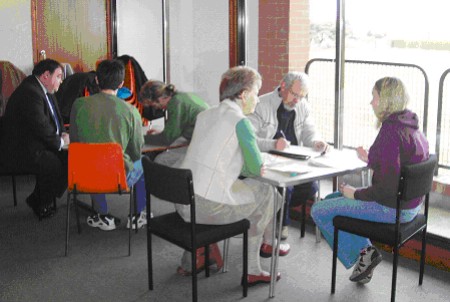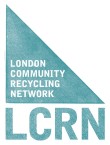Exercise 1: Storytelling
Purpose
The Storytelling exercise contributes to both the planning and the evaluation of a community composting project. It is designed to bring together stakeholders (including potential beneficiaries) for a discussion to illustrate what success looks like, and thereby identify its objectives (clarifying its mission and values), its desired outcomes, the potential barriers to success and how best to overcome them.
Preparation
Who to invite: Up to about 12 participants drawn from a selection of stakeholders who might be affected by or are able to affect the work of the project.
What to say to them: Invite them saying that this is the preparation stage for a formal project planning and evaluation process. The point of the session is for them to identify the ‘hoped-for’ outcomes of the project that are most important to them as stakeholders, with a view in subsequent exercises to developing the ways of knowing (indicators) that will provide a better understanding of the project’s impact.
Role of facilitator: To welcome participants, guide them through the steps, keep them to time and record findings on a flipchart using participants’ own words.
Materials needed: Chairs arranged in pairs or threes, flipchart stand, paper and marker pens, Post-it notes.
When to use the exercise: Ideally at the start of a project, or new project cycle, or as part of a strategic review process. The exercise could be repeated with different groups over a period of time to include a wider range of stakeholders’ perspectives, and generate interest and buy-in from potential partners.
Which tools work together: Can be used on its own or in the same session and as a warm–up in preparation for developing a project Storyboard. (Exercise 2)
Step by Step (Allow between 45 to 60 minutes depending on size of group)
- Participants form small groups (3-5 people) by choosing a person (or persons) to work with.
- Within each working group select roles as follows: Storyteller; Timekeeper; Note-taker (If you are in a pair, one of you will have be responsible for keeping to time.)
- Go round within the group allowing each person a turn to be the Storyteller describing a story that for them best encapsulates what this community composting project is about or why it is important. (5 minutes each story)
- Here’s how to tell a 5 minute story: whoever is note-taker can prompt the Storyteller using the following questions:
- Describe an occasion when you have seen a composting or recycling project or initiative working at its best, or when you have been most proud of something that a project you have been involved in has achieved.
- Who was involved, and what do you think made it work?
- What does the experience tell you about ensuring that a project / initiative is more successful in the future?
- The Note-taker summarises the anecdote on a Post-it note as a reminder for the group, and attaches it to the top of a blank sheet of flipchart paper.
- Once you have heard enough stories, use the space below the Post-it notes on the flipchart sheet to record your responses to the following questions under the headings in bold:
- What do the stories have in common? (Common themes)
- What does success look like for each of the projects described in the stories? (Desired outcomes)
- Drawing from the experiences described in the stories:
a. What lessons are there for how to run successful projects in the future? (Lessons)
b. What would need to change to ensure that they are more successful? (Barriers to success)
- Attach your completed flipchart sheet to the wall around the room to make a Gallery for everyone to look at.
- Once all the flipchart sheets have been viewed in the Gallery, bring participants together to review the findings and compile master lists illustrating: Common themes / Desired outcomes / Lessons / Barriers to success.
- Review the extent to which the Desired outcomes are in line with the project’s stated mission and values, and whether these need to be reviewed as a result of what you have heard today.

Storytelling - Small Group Work
Printed from: www.valuingcommunitycomposting.org.uk
This website was developed as one of the deliverables for the Defra funded Open University research project, WR0211: Unlocking the Potential of Community Composting. Information contained in it is correct at the time of publication. © The Open University, January 2009




"I thought the workshop was excellent and I learnt a good deal from it… the last exercise was really interesting and the way the flow diagrams worked made us really analyse what we’ve been doing and what more could be done." Participant, Devon Workshop
"We also need to work on changing public perception. This will only happen if people know what we do, because it is usually ignorance that causes the sniggers." Participant, Devon Workshop
"How great it was that you chose to work with Rotters for one of your round 2 stakeholder workshops. The organisation of the workshop was very well thought out, using the Storytelling – common themes." Rotters, Liverpool
"Breaking down all that Rotters is about into the Storyboard Template was extremely useful and a real eye opener in terms of how we can work more effectively within the local community." Rotters, Liverpool
"I really enjoyed Friday’s workshop… the methods used for measuring and discussion were excellent." Exeter Workshop Participant
"We also need to work on changing public perception. This will only happen if people know what we do, because it is usually ignorance that causes the sniggers." Participant, Devon Workshop
"How great it was that you chose to work with Rotters for one of your round 2 stakeholder workshops. The organisation of the workshop was very well thought out, using the Storytelling – common themes." Rotters, Liverpool
"Breaking down all that Rotters is about into the Storyboard Template was extremely useful and a real eye opener in terms of how we can work more effectively within the local community." Rotters, Liverpool
"I really enjoyed Friday’s workshop… the methods used for measuring and discussion were excellent." Exeter Workshop Participant